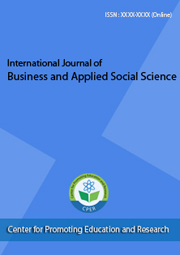current
Table of Contents
Articles
Author(s): Henni Marlinah, Anwar Sanusi, Junianto Tjahjo Darsono
Abstract:
Organizational success in achieving predetermined goals is influenced by many factors. One of these factors is human resources. This study aims to describe work discipline, organizational culture, and job satisfaction at the Muhammadiyah Vocational High School in Banten Province. The research sample was the permanent teachers of SMK Muhammadiyah Banten Province, with as many as 121 teachers. Organizational culture is measured by four indicators, namely autonomy in tasks obtaining a mean value of 3.94, autonomy in the results obtaining a mean value of 3.96, human orientation obtaining a mean value of 4.22, and orientation to development obtaining a mean value of 3, 79. In general, according to teachers' perceptions that human orientation is positively perceived by respondents. Based on the analysis results that have been carried out descriptively, the respondents' perceptions of work discipline, organizational culture, and job satisfaction are as follows: individual contributions to the organization. Work discipline can be monitored from the length of time worked in working hours, the level of frequency of employee permission to work, work attendance appears on employee attendance records. The test results show that the work permit best explains the overall work discipline of the teacher. Job satisfaction is related to perceptions of the conditions of work being managed. Teacher job the job itself measures satisfaction, promotion, supervision, workgroup, and working conditions. The test results show that satisfaction with the workgroup to complete the job can explain overall job satisfaction. Teacher performance must have four types of competency outcomes, namely pedagogical, personal, social, and professional competence at work. The test results show that personality competence best explains overall performance, followed by professional, social competence, and the last is pedagogic competence.






